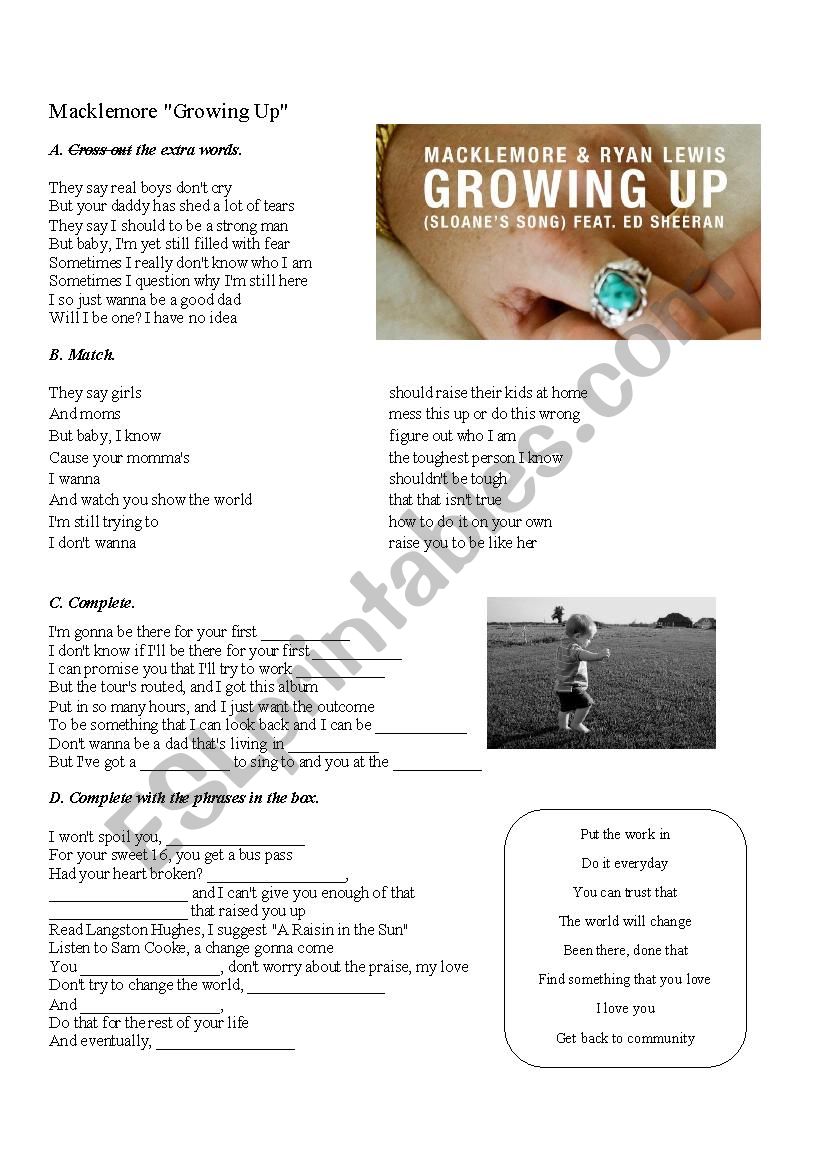Fucked Up Macklemore Lyrics: A Deep Dive Into The Controversy And Meaning
When it comes to Macklemore, the Seattle rapper has always been known for pushing boundaries and sparking conversations. His music isn’t just about catchy beats; it’s about delivering messages that resonate with listeners. But what happens when those messages cross into controversial territory? Today, we’re diving deep into the world of “fucked up Macklemore lyrics” and exploring why they’ve caused such a stir. If you’ve ever wondered about the meaning behind these lyrics, this is the article for you.
Macklemore’s music has always been a mix of personal stories, social commentary, and raw emotion. While his tracks like “Same Love” and “Thrift Shop” became anthems for acceptance and self-expression, some of his lyrics have sparked heated debates. Fans and critics alike have questioned whether certain lines go too far. In this article, we’ll explore the context, meaning, and impact of these controversial lyrics.
But before we dive into the specifics, let’s address the elephant in the room: Why are Macklemore’s lyrics so polarizing? Is it the delivery, the subject matter, or something else entirely? Stick around, and we’ll break it all down for you in a way that’s both informative and easy to digest. So, let’s get started!
Read also:Anthonys Italian Restaurant Whiteville Menu A Culinary Adventure In The Heart Of North Carolina
Understanding Macklemore’s Artistic Vision
Before we dissect the controversial lyrics, it’s essential to understand who Macklemore is as an artist. Born Benjamin Haggerty, Macklemore has carved out a unique niche in the music industry by blending catchy hooks with thought-provoking content. His work often tackles issues like mental health, addiction, and societal norms. But with great power comes great responsibility, and sometimes, that responsibility gets messy.
Biography: The Man Behind the Mic
Let’s take a moment to explore Macklemore’s background and how it influences his music. Below is a quick overview of his life and career:
| Full Name | Benjamin Kenneth Haggerty |
|---|---|
| Birthdate | June 19, 1983 |
| Place of Birth | Seattle, Washington, USA |
| Occupation | Rapper, Singer, Songwriter |
| Breakthrough | “Thrift Shop” (2012) |
Macklemore’s upbringing in Seattle played a significant role in shaping his artistic style. Growing up in a creative environment, he developed a passion for storytelling through music. This passion is evident in both his mainstream hits and his more controversial tracks.
Controversial Lyrics: The Good, the Bad, and the Ugly
Now that we’ve set the stage, let’s talk about the elephant in the room: those fucked up Macklemore lyrics. What makes them so controversial? Is it the explicit language, the sensitive topics, or something else entirely? Let’s break it down.
Explicit Language: Pushing the Limits
Macklemore isn’t afraid to use strong language in his music. While some fans appreciate the rawness, others feel it crosses the line. Tracks like “Otherside” and “Downtown” feature lyrics that might not be suitable for all audiences. But is the use of explicit language justified in the context of the song’s message?
- Explicit language can add authenticity to a track.
- It can also alienate listeners who prefer cleaner content.
- The key lies in intent: Is the language used for shock value, or does it serve a purpose?
Addressing Sensitive Topics
One of the reasons Macklemore’s lyrics have caused such a stir is his willingness to tackle sensitive subjects. From addiction to race relations, his music often delves into topics that make people uncomfortable. But does that discomfort lead to growth, or does it just create division?
Read also:Mike Cell Oriental Grocery Your Ultimate Guide To Asian Delights
“Same Love”: A Case Study in Controversy
“Same Love” is one of Macklemore’s most famous tracks, and it’s also one of his most polarizing. While many praised the song for its pro-LGBTQ+ message, others criticized it for what they perceived as tone-deafness. The debate highlights a broader issue: Can an ally’s voice ever truly represent marginalized communities?
- Some argue that Macklemore’s intentions were pure and his message was powerful.
- Others feel that his position as a white artist gave him undue attention in a movement led by people of color.
The Impact of Fucked Up Macklemore Lyrics
So, what’s the real impact of these controversial lyrics? Do they harm or help? Let’s explore both sides of the argument.
Positive Effects
On one hand, Macklemore’s willingness to tackle tough subjects has sparked important conversations. His music encourages listeners to think critically about issues they might otherwise ignore. By bringing these topics into the mainstream, he’s helping to normalize discussions around mental health, addiction, and identity.
Negative Effects
On the other hand, some argue that his lyrics can be alienating. The use of explicit language and sensitive topics can turn off potential fans who might otherwise benefit from his messages. Additionally, there’s the risk of overshadowing voices from marginalized communities who might have more authentic perspectives on these issues.
Understanding the Context
It’s important to remember that music is a form of self-expression. Macklemore’s lyrics, whether controversial or not, are a reflection of his personal experiences and beliefs. To truly understand their impact, we need to consider the context in which they were written.
Influences and Inspiration
Macklemore draws inspiration from a wide range of sources, including his own struggles with addiction and his observations of the world around him. This diverse set of influences gives his music depth and complexity. However, it also means that his lyrics might not resonate with everyone.
The Role of Fans and Critics
Fans and critics play a crucial role in shaping the perception of an artist’s work. When it comes to Macklemore, opinions are divided. Some see him as a trailblazer, while others view him as a provocateur. But what do the numbers say?
Statistics and Trends
According to recent studies, Macklemore’s music continues to resonate with audiences worldwide. Despite the controversy, his tracks consistently rank high on streaming platforms. This suggests that, for many listeners, the message outweighs the medium.
Expert Opinions: What Do the Experts Say?
When it comes to controversial lyrics, expert opinions can provide valuable insight. Musicologists, sociologists, and cultural critics have weighed in on Macklemore’s work, offering perspectives that go beyond surface-level reactions.
Key Takeaways from Expert Analysis
Experts generally agree that Macklemore’s lyrics are a reflection of his time and place. While some might find them offensive, others see them as a necessary part of the cultural conversation. The key, according to many experts, is to approach his music with an open mind and a willingness to engage in dialogue.
Final Thoughts: Where Do We Go From Here?
In conclusion, Macklemore’s controversial lyrics are a double-edged sword. They spark important conversations but can also alienate listeners. So, what’s the takeaway? It’s all about perspective. If you’re willing to look beyond the surface, you might find that his music offers valuable insights into the human experience.
As for what you can do, we encourage you to engage with the material critically. Listen to Macklemore’s music with an open mind, and don’t be afraid to question your assumptions. And if you enjoyed this article, why not share it with a friend? Who knows? You might just start a conversation of your own.
Table of Contents
- Understanding Macklemore’s Artistic Vision
- Biography: The Man Behind the Mic
- Controversial Lyrics: The Good, the Bad, and the Ugly
- Explicit Language: Pushing the Limits
- Addressing Sensitive Topics
- “Same Love”: A Case Study in Controversy
- The Impact of Fucked Up Macklemore Lyrics
- Positive Effects
- Negative Effects
- Understanding the Context
- Influences and Inspiration
- The Role of Fans and Critics
- Statistics and Trends
- Expert Opinions: What Do the Experts Say?
- Key Takeaways from Expert Analysis
- Final Thoughts: Where Do We Go From Here?
Article Recommendations


